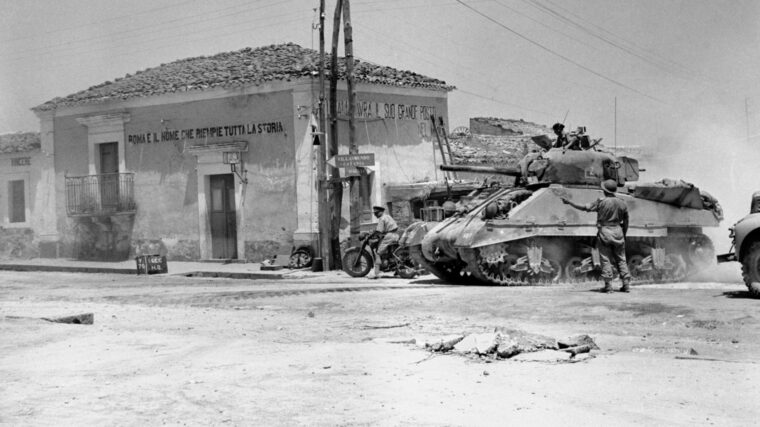
Bernard Montgomery
Operation Fustian: Airborne Assault on the Bridges to Catania
By Mark Simmons‘‘As I floated down, the whole dropping zone seemed to be on fire; tracer bullets had set the tinder-dry stubble alight. Read more

Bernard Montgomery
‘‘As I floated down, the whole dropping zone seemed to be on fire; tracer bullets had set the tinder-dry stubble alight. Read more
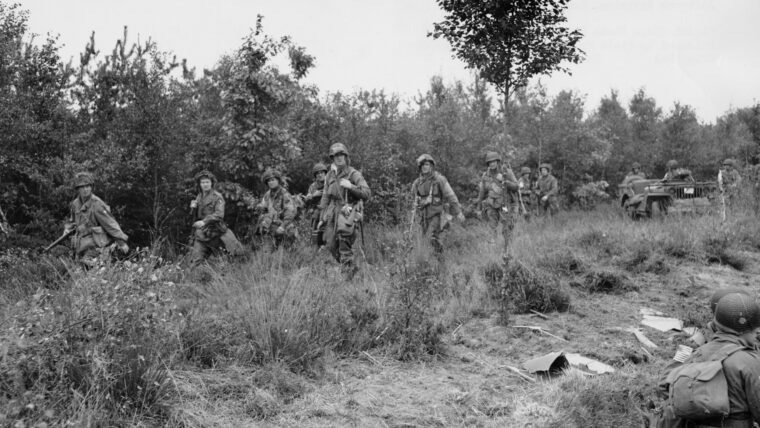
Bernard Montgomery
On the veranda of his temporary headquarters in a Dutch country house outside Veghel, Holland, renowned Luftwaffe General Kurt Student played lunch host to an old comrade, the chief of staff of the German Seventh Army. Read more
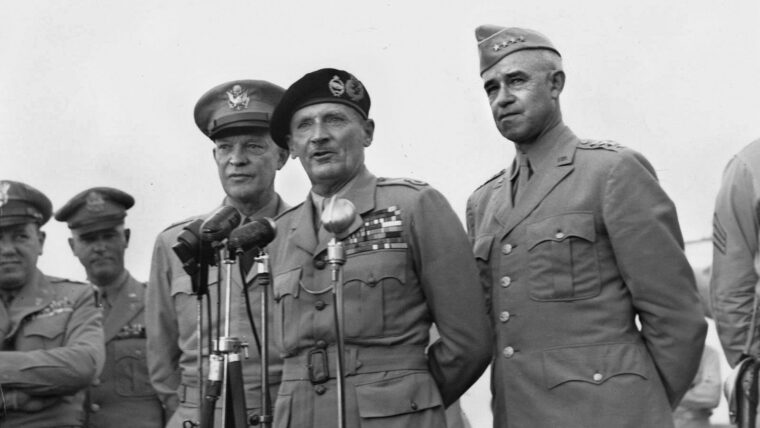
Bernard Montgomery
With the exceptions of the Normandy invasion and the Battle of the Bulge, few other World War II battles in the European Theater have received more historical scrutiny than the Battle of the Falaise Gap. Read more
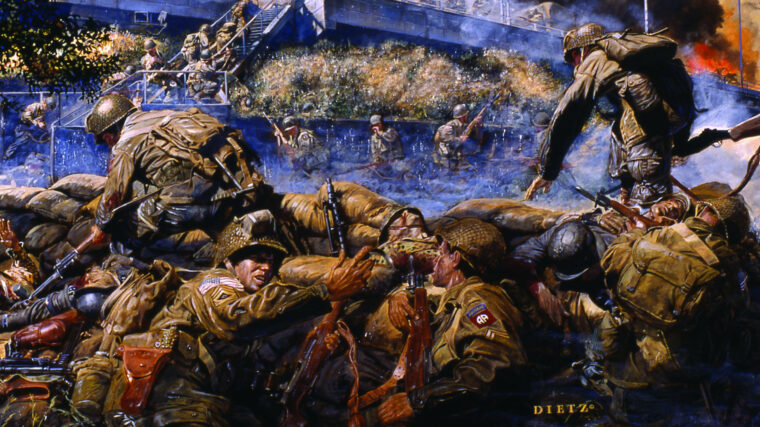
Bernard Montgomery
The city of Nijmegen, in the southeastern part of Holland and about six miles from the Dutch-German border, is believed to be Holland’s oldest city, going back some 2,000 years. Read more
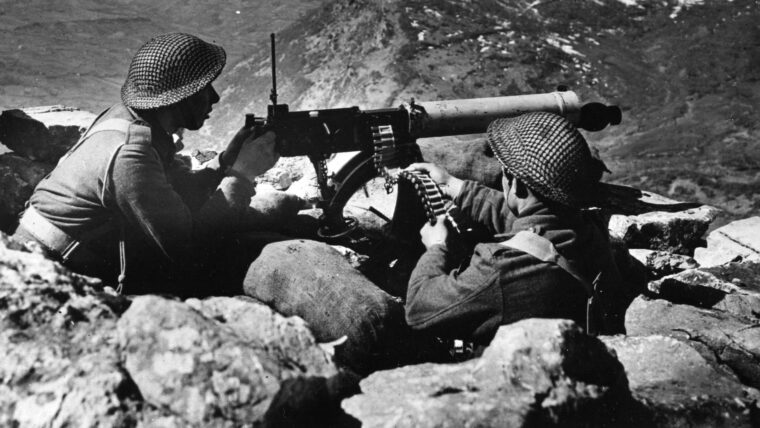
Bernard Montgomery
Despite the Nazi conquest of European nations during World War II, individual soldiers from the occupied countries rose again to fight the German Army, and the largest army in exile to fight the Germans was Polish. Read more
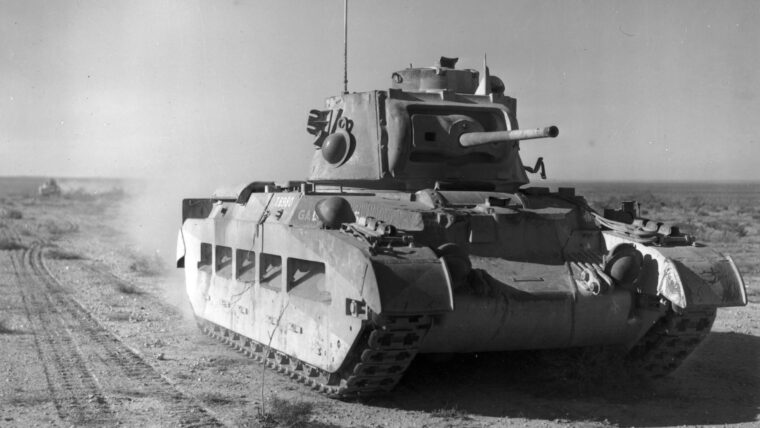
Bernard Montgomery
The origins of the Matilda Tank or “I” Tank date back to 1934, when Maj. Gen. Percy C.S. Read more
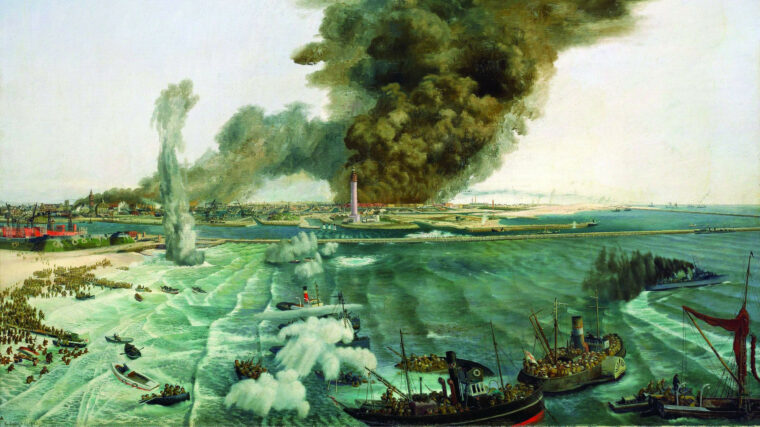
Bernard Montgomery
Following the 76th anniversary of the evacuation of the British Expeditionary Force (BEF) from the beaches and harbor of Dunkirk, one is amazed at the number of articles and volumes written about the subject. Read more
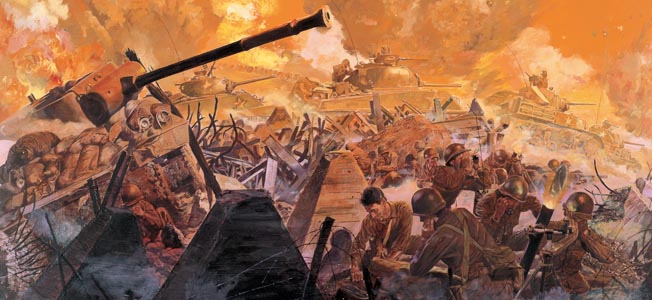
Bernard Montgomery
The road to Fort Driant began for the United States Third Army when it landed on Utah Beach at 3 pm on August 5, 1944. Read more
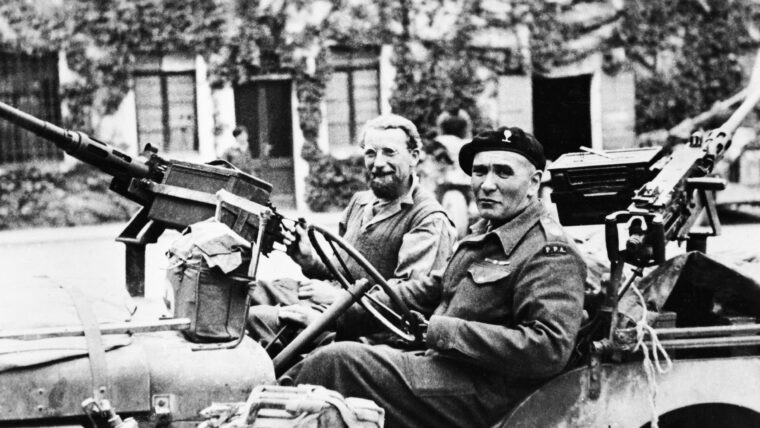
Bernard Montgomery
In September 1942, two patrols of armed jeeps and trucks of the Long Range Desert Group (LRDG) raided the German airfield at Barce. Read more
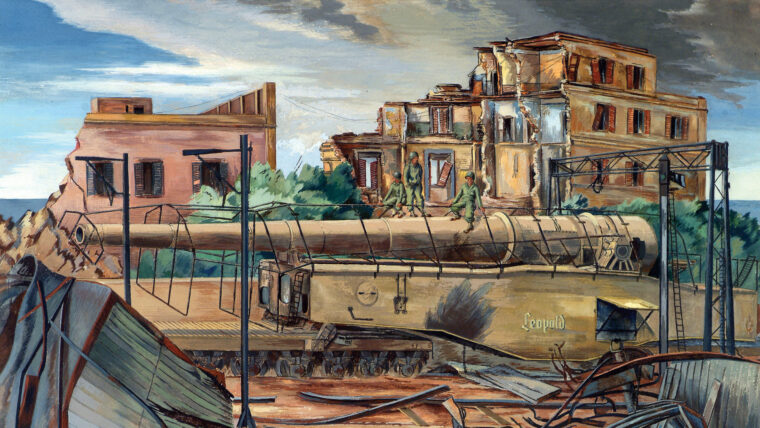
Bernard Montgomery
As the last days of 1943 slipped away, World War II in Italy ground to a miserable stalemate. Read more
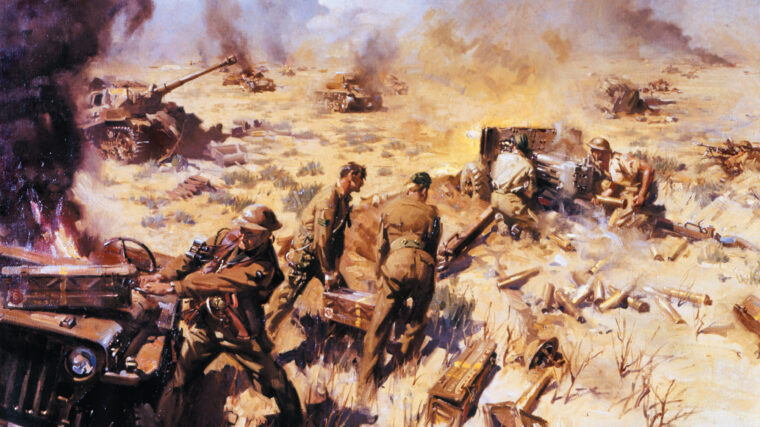
Bernard Montgomery
An old cliché admonishes, “Bad things always come in threes.” Whether it was thought of as a law of nature or merely coincidence, a rapid succession of events in North Africa during the summer of 1942 seemed to confirm this widely held notion among the officers and men of the British Eighth Army. Read more
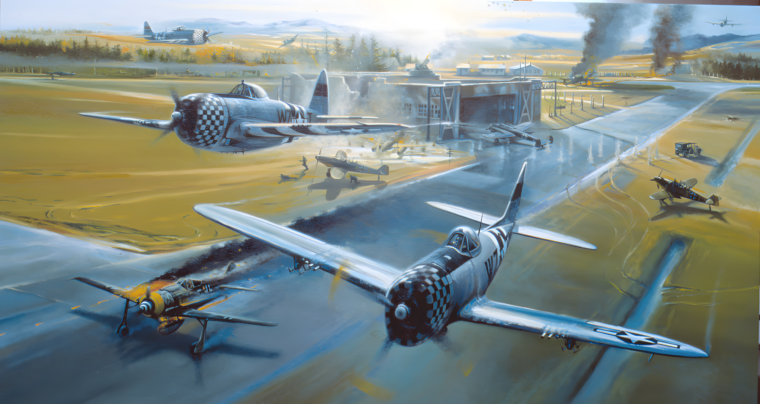
Bernard Montgomery
The captured German pilot was cocky and boastful. He had just parachuted into the American airfield, now lit up by the fires of burning Republic P-47 Thunderbolts, a sprinkling of bright torches amid the gray January gloom and the dirty white snow. Read more
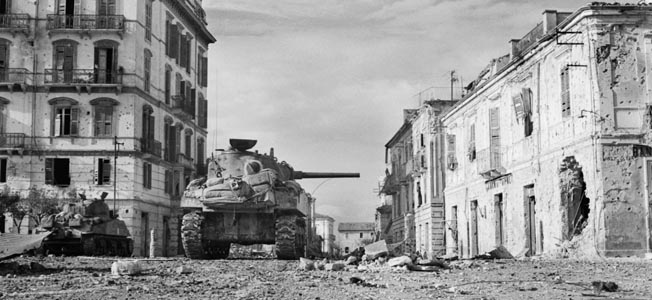
Bernard Montgomery
By the autumn of 1943, the Allied armies fighting in Italy had discovered that Winston Churchill’s description of Italy as the “soft underbelly of Europe” had been a falsehood of monumental proportions. Read more
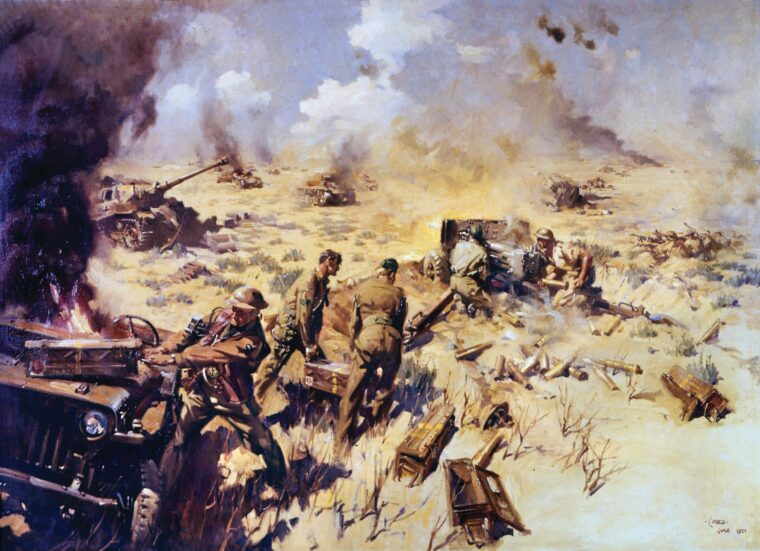
Bernard Montgomery
The war in North Africa flung vast armies across the arid deserts of Libya and Egypt for two long years, beginning with the Italian invasion of Egypt in September 1940. Read more
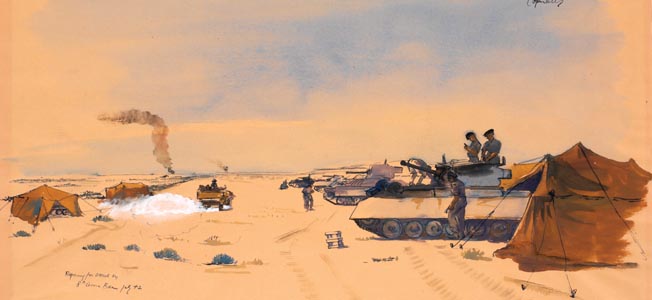
Bernard Montgomery
When one gazes upon the bookshelves in the Military History section of a well-endowed library, one cannot help but notice the number of volumes dedicated to the battles for North Africa during World War II and particularly to the Battle of El Alamein in October 1942. Read more
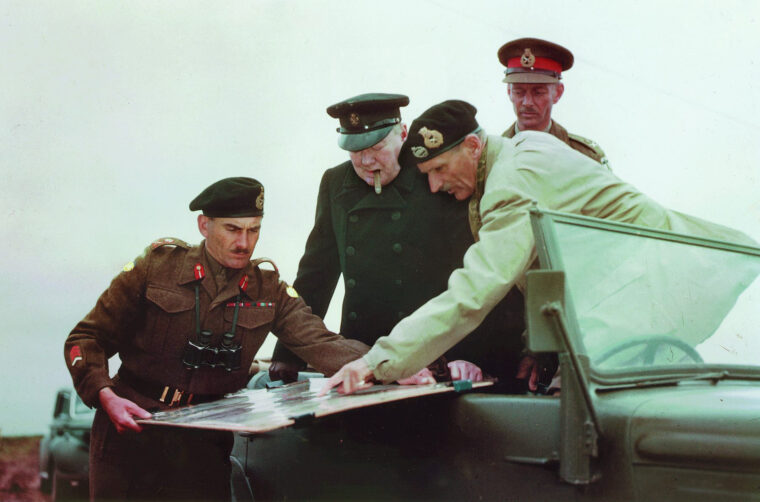
Bernard Montgomery
In an August 14, 1944, General Bernard L. Montgomery was facing a manpower crisis, unable to drive the Germans out of Caen. Read more
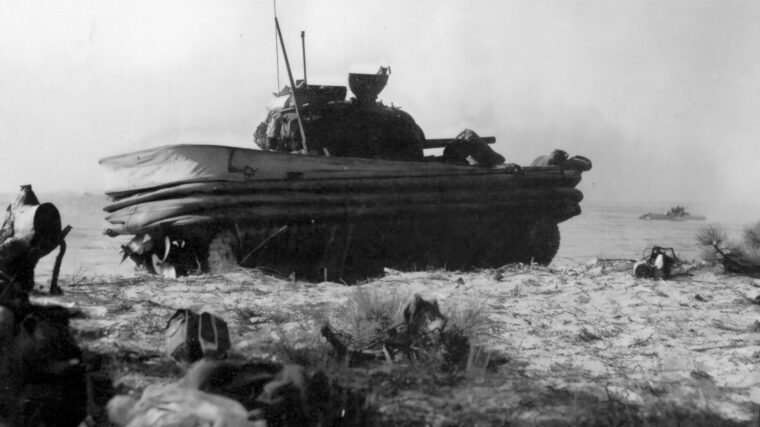
Bernard Montgomery
German defenders hunkered in their concrete and steel bunkers along the Normandy coast were in for two major shocks on Tuesday, June 6, 1944. Read more
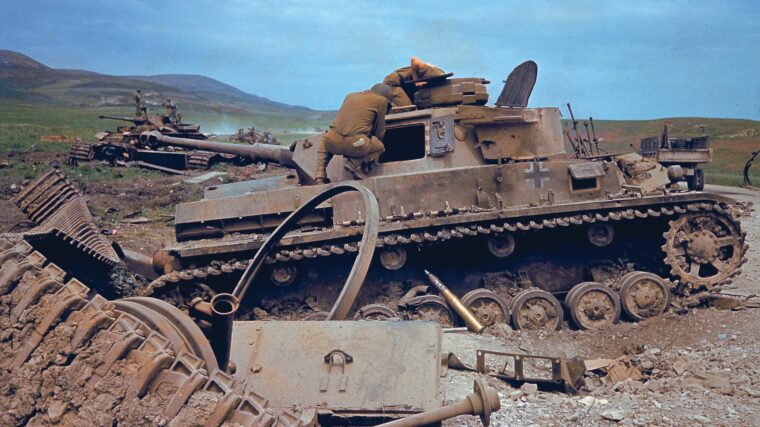
Bernard Montgomery
In the early morning hours of March 23, 1943, the U.S. 1st Infantry Division was preparing to attack. Read more
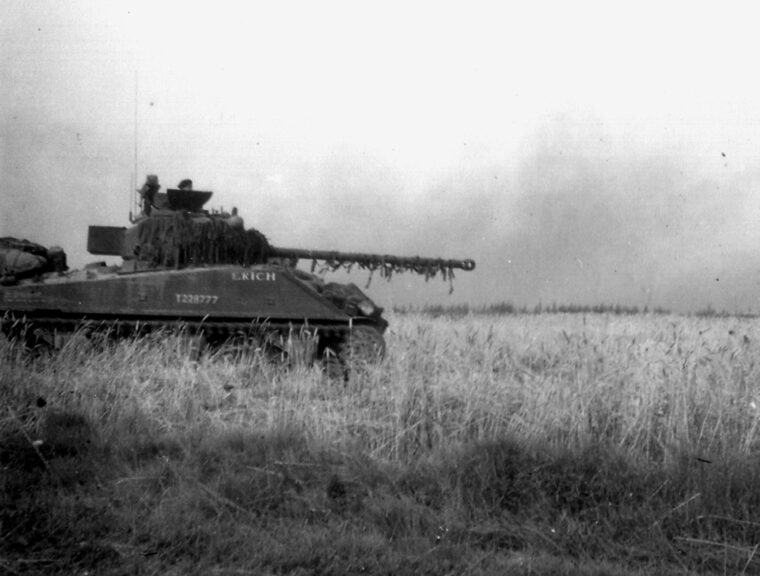
Bernard Montgomery
For the Allied tankers and infantrymen of the American, British, Canadian, and Free French armies battling German Panther and Tiger tanks in Normandy in the summer of 1944, the Sherman tank’s failures were glaringly evident as their own shells bounced off the hulls of the Nazi armor and they were themselves destroyed at a far greater range by the powerful German tanks. Read more
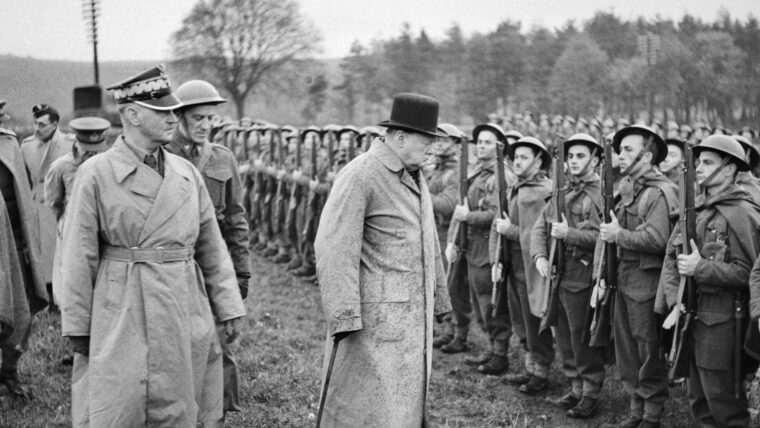
Bernard Montgomery
Stanislaw Sosabowski started his military career in the anti-Hapsburg Polish underground movement in 1907, served in the Austrian Army in World War I, and rose to the command of the Polish Parachute Brigade in World War II. Read more